Have you ever dreamt of working from a sun-drenched beach or perhaps from the cozy comfort of your home without the dreaded commute? The allure of remote work without experience is stronger than ever, opening doors for those who wish to embrace a flexible lifestyle.
This guide will navigate the exciting journey of beginning a remote career, even if you’re starting from scratch. From understanding the basics of remote work to uncovering platforms and strategies to help you land your first opportunity, we’ll explore it all. Ready to embark on this adventure? Let’s dive in.
Understanding Remote Work: The New Frontier
In today’s digital age, remote work has become a burgeoning trend, transforming how we perceive traditional employment. With technological advancements bridging the gap between distant locations, the workplace has evolved beyond physical boundaries.
This section aims to unravel the essence of remote work and it’s benefits and debunks common myths associated with starting this journey without prior experience.
What is Remote Work?
Remote work, often referred to as telecommuting, involves performing job duties from a location outside the conventional office environment. This could mean working from home, a café, or even another country.
The key is flexibility to choose where you work while staying connected through digital tools. Remote work spans various fields, from writing and graphic design to customer service and programming. The freedom to work from anywhere makes it a compelling option for many.
Start by exploring industries that naturally lend themselves to remote work. Fields like IT, marketing, and content creation often have abundant opportunities. Identifying which sectors align with your interests can help you focus your job search effectively.

Benefits of Working Remotely
Imagine waking up without the stress of rush-hour traffic. Remote work offers numerous benefits, including increased flexibility, better work-life balance, and the opportunity to customize your workspace.
By eliminating the daily commute, you gain more time for personal pursuits, family, and self-care. Additionally, remote work can lead to improved productivity, as individuals have the autonomy to create an environment that suits their needs.
- Flexibility to set your own schedule
- Increased productivity and efficiency
- Cost savings on commuting and work attire
- Opportunity to travel and work simultaneously
Myths About Remote Work Without Experience
Many people hesitate to pursue remote work without experience due to misconceptions that cloud their judgment. A common myth is that only tech-savvy individuals can succeed in remote roles. However, with the right approach, anyone can thrive.
Another myth is that remote work lacks stability. In reality, many companies embrace remote work models, offering stable and rewarding careers. Understanding these myths is crucial in building confidence as you start your remote work journey.

Getting Started: Your First Steps Towards Remote Work
Embarking on a remote work journey might initially seem daunting, especially if you lack prior experience. However, you can set yourself up for success with a clear strategy and a touch of creativity.
This section will guide you through identifying your skills, crafting compelling applications, and building a portfolio that showcases your potential to prospective employers.
Identifying Your Skills and Interests
Before diving into the job market, it’s essential to understand your unique skills and interests. Consider what tasks you excel at and what activities you enjoy. Are you a natural communicator, or do you have a knack for design?
Identifying these strengths will help you target roles that align with your capabilities. Take online assessments or consult career resources to gain insights into potential career paths.
Create a list of your skills and categorize them into technical and soft skills. Technical skills may include proficiency in specific software, while soft skills encompass communication and problem-solving abilities. This exercise will clarify your strengths and areas for improvement.

Creating a Standout Resume and Cover Letter
Your resume and cover letter are your first impression in the remote job market. Tailor them to highlight relevant skills and experiences that make you an ideal candidate. Emphasize your ability to adapt and work independently, crucial traits for remote roles.
Use action verbs to describe your achievements and quantify your contributions where possible. A well-crafted application can significantly increase your chances of landing an interview.
Building a Portfolio: Showcasing Your Potential
A portfolio serves as a visual representation of your work and accomplishments. Even if you’re just starting, you can create sample projects demonstrating your skills.
Include a variety of formats, such as written content, design samples, or coding projects, depending on your field. A portfolio not only showcases your capabilities but also reflects your commitment to professional growth.
| Portfolio Element | Description |
|---|---|
| Written Samples | Articles, blog posts, or essays that demonstrate your writing prowess. |
| Design Projects | Visual creations, such as logos or graphics, showcasing your design skills. |
| Coding Examples | Snippets of code or completed projects that highlight your programming abilities. |

Where to Find Remote Job Opportunities
With your resume polished and portfolio ready, it’s time to explore the avenues where remote job opportunities abound. This section will introduce you to platforms designed for remote work, strategies for effective networking, and the pros and cons of freelancing versus full-time positions.
Top Remote Job Platforms for Beginners
Several platforms cater specifically to individuals seeking remote work. Websites like Upwork, Remote.co, and We Work Remotely list many job openings across various industries.
These platforms allow you to filter jobs based on your skills and preferences, making it easier to find suitable roles. Remember to research each platform’s credibility and read reviews from other users to ensure a positive experience.
Networking and Leveraging Social Media
Networking plays a vital role in the remote job search. Leverage social media platforms like LinkedIn to connect with professionals in your desired field.
Join groups and forums dedicated to remote work to gain insights and tips from experienced individuals. Engaging in meaningful conversations and sharing expertise can lead to valuable connections and job leads.
Attend virtual networking events and webinars related to remote work. These gatherings offer opportunities to meet industry experts and potential employers. Being proactive in such settings can enhance visibility and open doors to exciting opportunities.

Freelancing vs. Full-Time Remote Positions
When considering remote work, you’ll encounter two primary options: freelancing and full-time positions. Freelancing offers flexibility and the chance to work on diverse projects, but it may lack the stability of a full-time role.
On the other hand, full-time remote positions provide consistent income and benefits but may require adherence to a fixed schedule. Weigh the pros and cons to determine which option aligns with your lifestyle and goals.
Tips for Remote Work Success: Thriving in a Virtual Environment
Once you’ve secured a remote position, the journey doesn’t end there. Thriving in a virtual environment requires discipline, effective time management, and healthy work-life balance. This section provides practical tips to ensure your success as a remote worker.
Establishing a Productive Workspace
Your workspace plays a significant role in your productivity. Designate a specific area in your home where you can focus without distractions.
Ensure your workspace has ergonomic furniture, adequate lighting, and essential tools. A well-organized space fosters concentration and creativity, allowing you to perform at your best.

Time Management Techniques for Remote Workers
Managing your time effectively is crucial when working remotely. Consider using techniques like the Pomodoro Technique, which involves working in focused intervals followed by short breaks.
Utilize digital tools such as calendars and task management apps to stay organized and meet deadlines. Prioritizing tasks and setting realistic goals will help you maintain a steady workflow.
Maintaining Work-Life Balance
Achieving a healthy work-life balance is vital for long-term success in remote work. Set boundaries by establishing clear working hours and communicating them to your household.
Make time for leisure activities, exercise, and social interactions to prevent burnout. Remember, a balanced lifestyle contributes to both personal well-being and professional productivity.

Real-Life Success Stories: Inspiration for Your Journey
Hearing about others who have successfully transitioned to remote work can be incredibly motivating. This section shares real-life success stories and valuable lessons from individuals who started their remote careers with little to no experience.
Profiles of Individuals Who Started with No Experience
Meet Sarah, who transformed her passion for writing into a thriving freelance career, and John, who leveraged his customer service skills to secure a remote position with a tech company. Their journeys highlight the power of determination and the willingness to learn. These stories serve as a reminder that with the right mindset, you, too, can achieve your remote work aspirations.
Lessons Learned and Tips from Remote Work Veterans
Seasoned remote workers often emphasize the importance of adaptability and continuous learning. Embrace challenges as opportunities for growth and seek feedback to refine your skills.
Networking and building a support system of fellow remote workers can provide valuable insights and encouragement. By learning from those who’ve walked the path before you, you’ll be better equipped to navigate your own journey.

Embracing the Remote Work Lifestyle: What Comes Next?
As you settle into the remote work lifestyle, the journey doesn’t stop here. Continuous learning, expanding your career opportunities, and staying connected with the remote community is essential for sustained success. This final section explores how you can continue to thrive in remote work.
Continuous Learning and Skill Development
Remote work offers ample opportunities for skill development. Take advantage of online courses and certifications to enhance your expertise. Whether it’s mastering a new programming language or honing your marketing skills, continuous learning keeps you competitive in the ever-evolving job market. Stay curious and open to acquiring new knowledge.

Expanding Your Remote Career Opportunities
As you gain experience, consider expanding your remote career horizons. Explore leadership roles or transition into different fields that pique your interest. Building a diverse skill set opens doors to a wider range of opportunities. Stay proactive in seeking growth and challenging yourself to reach new heights.
Set aside time each week for professional development activities. This could involve reading industry-related articles, attending webinars, or engaging in online discussions. Consistent efforts in learning and networking can significantly impact your career trajectory.
Staying Connected in a Remote World
One challenge of remote work is the potential for isolation. Stay connected with colleagues through virtual meetings, chats, and collaborative platforms. Participate in remote work communities to share experiences and gain insights. Building a strong support network enhances your remote work experience and provides a sense of belonging.
Embarking on a journey of remote work without experience is both exciting and rewarding. Following the steps outlined in this guide, you can confidently take the first steps towards a fulfilling remote career.
Remember, the possibilities are endless, and with determination and the right resources, you can turn your remote work dreams into reality. Embrace the adventure, and watch your career flourish in ways you never imagined.





